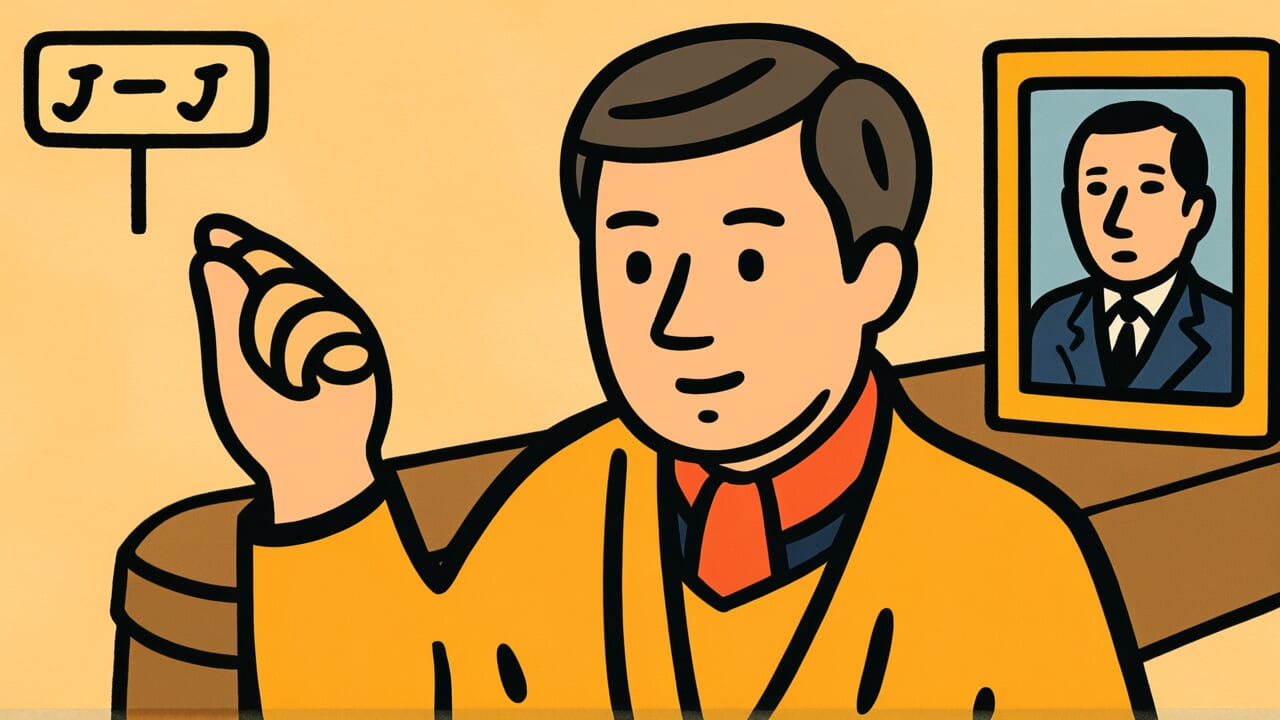How to Read “Nobility does not intend arrogance, yet arrogance comes naturally”
Ki wa ogori to kisezu shite ogori onozukara kitaru
Meaning of “Nobility does not intend arrogance, yet arrogance comes naturally”
This proverb points out and warns about a human tendency. People in high positions easily become arrogant without even realizing it.
The key phrase is “does not intend.” This means the person isn’t trying to become arrogant on purpose.
Instead, having status and power changes how others treat you. People give you special treatment and criticize you less. In this environment, you naturally lose your humility.
This proverb mainly serves as a warning to those in power or leadership positions. It’s also used to advise people who get promoted or achieve success to stay humble.
Today, this lesson applies to corporate executives, politicians, and organizational leaders. Anyone with influence should remember this wisdom.
The proverb reminds us of a dangerous truth. Your position can change who you are as a person.
Origin and Etymology
The exact source of this proverb has several theories. Most scholars believe it was influenced by ancient Chinese philosophy, especially Confucian teachings.
“Ki” means high position or status. “Ogori” means arrogance or pride.
“Kisezu shite” means without intending or without planning. “Onozukara kitaru” means to come naturally or arrive on its own.
Put together, the phrase means this: People in high positions become arrogant naturally, even without trying to.
Throughout history, many texts have described how powerful people become corrupt. Confucianism especially emphasized virtue in those with status. It taught that powerful people should be the most humble.
This proverb likely emerged from this tradition of Eastern political thought and human observation.
In Japan, such warnings became especially important during the samurai era. When rulers became arrogant, they lost the people’s trust. Eventually, they lost their positions too.
This short phrase captures centuries of historical lessons about power and human nature.
Usage Examples
- Since becoming department head, he stopped listening to others. This is exactly what “Nobility does not intend arrogance, yet arrogance comes naturally” warns about.
- Her attitude changed after success, but she probably doesn’t notice. As they say, “Nobility does not intend arrogance, yet arrogance comes naturally.”
Universal Wisdom
This proverb reveals a fundamental truth about human psychology. Why do people in high positions become arrogant so easily?
The answer is that environment changes how we see ourselves.
When you reach a high position, people around you act differently. You receive less criticism and more praise. Your opinions carry more weight. Your mistakes get overlooked more easily.
In this environment, people start believing they’re special. The scary part is that they don’t notice this change happening.
The proverb uses “does not intend” to highlight this lack of awareness. Nobody decides to become arrogant. Everyone wants to stay humble.
But the environment quietly and steadily changes people. This invisible transformation is the most dangerous part.
Throughout history, powerful people have fallen into corruption again and again. This isn’t about individual character flaws. It’s about the structural danger that comes with position and power.
Our ancestors understood this human weakness. They left us this warning in words. Humility must be consciously protected, or it will be lost.
This is the deep understanding of human nature that “Nobility does not intend arrogance, yet arrogance comes naturally” conveys.
When AI Hears This
When wealth concentrates in one place, it resembles a closed system receiving high-density energy. In physics, systems with concentrated energy always move toward disorder.
Hot coffee always cools down if left alone. A clean room naturally becomes messy. This is the law of entropy increase.
What’s interesting is that wealth, as “choice energy,” follows the same principle. When poor, your choices are limited. Your actions naturally maintain order.
You walk the same path daily. You shop at the same stores. But when you gain wealth, your choices explode. You can go anywhere, buy anything, meet anyone.
This state is exactly what physics calls “increased degrees of freedom.”
The important point is that this process is irreversible. In thermodynamics, reducing entropy requires external energy input. Humans are the same.
Maintaining order among expanded choices requires conscious effort, an “external energy.” But most people don’t make this effort. Why? Because moving toward disorder is the natural flow.
Arrogance, then, is simply the increased freedom from wealth flowing naturally toward the most probable state: disorder. Arrogance comes without intention because it follows the universe’s basic laws.
Lessons for Today
“Nobility does not intend arrogance, yet arrogance comes naturally” teaches you something important. Success and promotion are wonderful, but they also carry the danger of losing yourself.
The key is to consciously maintain humility when your position rises.
Practically, this means regularly taking time for self-reflection. Seek honest feedback from people you trust. Remember that your position is temporary, separate from your true worth as a person.
This proverb also matters if you’re not in a leadership role. When you see powerful people around you becoming arrogant, you can understand it as a natural process.
This helps you respond calmly. You can view it as a structural problem, not a personal attack.
Whatever your position, this lesson applies to you. Even small successes can change people. That’s why keeping your original mindset matters.
Maintain gratitude and respect for those around you. This is what leads to true growth.



Comments